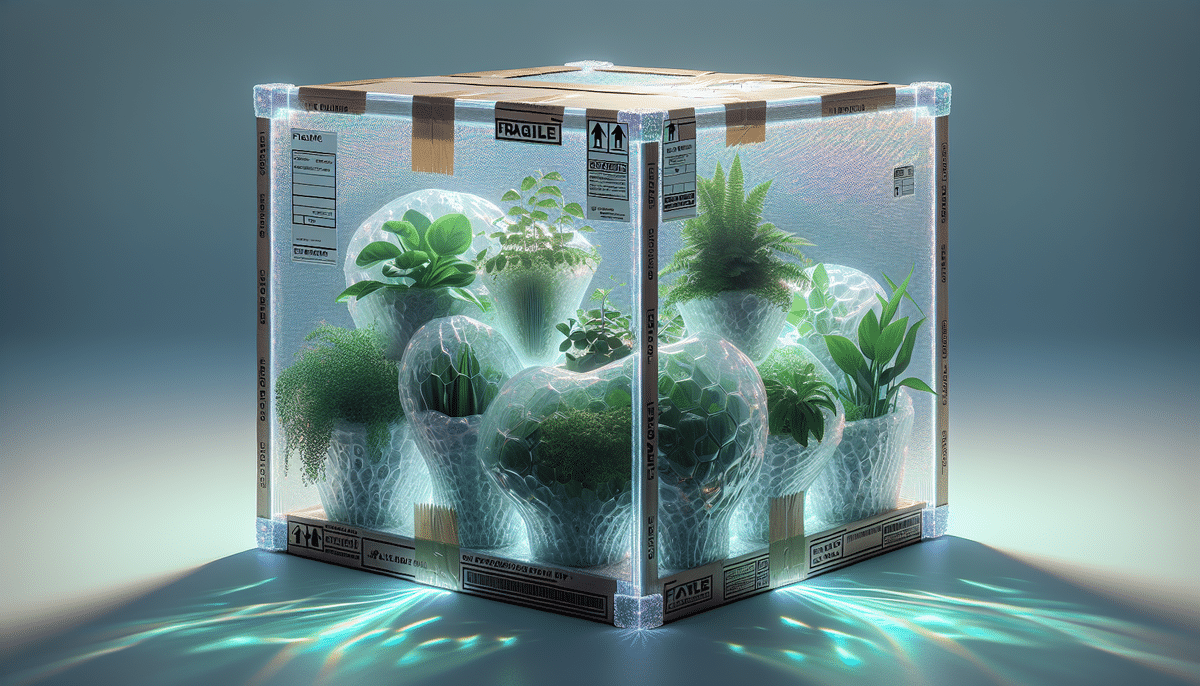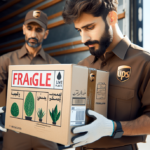FedEx Provides Guidelines for Shipping Plants and Plant Materials
Shipping plants or plant materials involves navigating numerous challenges, including the fragility of the plants and the complexity of legal restrictions surrounding the transport of live organisms. Proper handling is essential to prevent damage and comply with regulations. Fortunately, companies like FedEx offer comprehensive guidelines and best practices to ensure the safe and efficient shipping of plants and plant materials.
Why Proper Shipping of Plants and Plant Materials is Crucial
Proper shipping of plants and plant materials is vital for several reasons:
- Health and Longevity: Plants are living organisms that require specific conditions to remain healthy. Shipping them in inadequate environments can cause stress, damage, and reduced lifespan.
- Legal Compliance: Transporting live organisms often involves strict legal regulations. Non-compliance can result in fines and legal actions.
- Environmental Protection: Proper shipping methods help prevent the spread of pests and diseases that can devastate local ecosystems. According to the US Department of Agriculture (USDA), invasive species can cause billions in agricultural damage annually.
Understanding the Legal Requirements for Shipping Plants and Plant Materials
Before shipping plants, it's essential to understand the legal requirements, which vary based on the type of plant and destination:
- Permits and Certifications: Certain plants may require permits or health certificates. For instance, the USDA regulates the import and export of specific plant species.
- Invasive Species Regulations: Shipping non-native plants can introduce invasive species. The Environmental Protection Agency (EPA) provides guidelines to prevent such introductions.
- Disease Control: Ensuring plants are disease-free is crucial. Regulatory bodies may require inspections and certifications to prevent the spread of plant diseases.
How to Prepare Plants and Plant Materials for Shipping
Proper preparation ensures that plants survive the shipping process:
- Trimming and Pruning: Trim excess foliage to reduce stress and prevent damage during transit.
- Watering: Ensure plants are adequately watered before shipping to maintain moisture levels.
- Pest Control: Inspect and treat plants for pests or insects that could cause issues during shipping.
- Species-Specific Care: Different plants have unique needs; research and cater to these requirements accordingly.
Choosing the right packaging is equally important. Use sturdy boxes with adequate padding materials like bubble wrap or packing peanuts to prevent movement and damage. Clearly label packages with contents and handling instructions to ensure careful handling.
Best Practices for Packaging Plants and Plant Materials for Transportation
Effective packaging is critical to protect plants during transit:
- Sturdy Containers: Use durable boxes that can withstand handling and protect against crushing.
- Cushioning Materials: Incorporate materials like bubble wrap, foam, or biodegradable packing peanuts to secure plants.
- Climate-Controlled Packaging: For sensitive plants, consider packaging that regulates temperature and humidity.
- Clear Labeling: Indicate the contents and any special handling instructions to ensure careful treatment.
When shipping internationally, comply with all import and export regulations to avoid delays or legal issues. Partner with reputable carriers experienced in handling live plants, such as FedEx, and track shipments to monitor their progress.
Choosing the Right Shipping Method for Your Plants and Plant Materials
Selecting an appropriate shipping method depends on several factors:
- Distance and Speed: Ground shipping is cost-effective for local or regional shipments, while air freight offers faster delivery for long distances.
- Plant Fragility: Delicate plants may benefit from expedited or climate-controlled shipping to minimize transit time and exposure to harsh conditions.
- Budget: Balancing cost with the need for speed and protection is essential.
- Seasonal Considerations: Extreme temperatures can impact plant health. During summer or winter, opt for shipping methods that offer temperature regulation.
For example, FedEx provides various shipping options, including expedited services and climate-controlled environments, to accommodate different plant shipping needs.
Tracking Your Shipment: Tips to Ensure Safe Delivery of Your Plants and Plant Materials
Monitoring your shipment is crucial for timely and safe delivery:
- Online Tracking Tools: Utilize tracking features offered by carriers like FedEx to monitor your shipment in real-time.
- Insurance: Insure high-value plants to protect against potential damage or loss during transit.
- Weather Awareness: Check weather forecasts for both pickup and delivery locations. Communicate any concerns with your carrier to implement additional protective measures if necessary.
- Accurate Labeling: Ensure all shipping information is correct to prevent misrouting or delays.
Common Mistakes to Avoid When Shipping Plants and Plant Materials
Avoiding common mistakes can enhance the success of your plant shipments:
- Poor Packaging: Inadequate packaging can lead to damage. Invest in quality materials and techniques to secure plants.
- Ignoring Legal Requirements: Failing to comply with regulations can result in fines or shipment rejection. Research and adhere to all relevant laws.
- Using Unreliable Carriers: Choose carriers with experience in handling live plants to ensure proper care during transit.
- Neglecting Plant Needs: Different plants have specific requirements. Failing to address these can compromise plant health.
By steering clear of these errors, you can improve the likelihood of your plants arriving safely and in good condition.
How FedEx Ensures Safe Delivery of Your Plants and Plant Materials
FedEx offers specialized services to safeguard your plant shipments:
- Expert Packaging Guidance: FedEx provides detailed instructions and materials to ensure proper plant preparation and packaging.
- Climate-Controlled Shipping Options: For sensitive or rare plants, FedEx offers temperature-regulated environments to maintain optimal conditions during transit.
- Real-Time Tracking: Advanced tracking tools keep you informed about your shipment's status at every stage.
- Global Network: FedEx's extensive international reach ensures that your plants can be transported safely to destinations worldwide.
The Importance of Choosing a Reliable Shipping Provider for Your Plant Shipments
Selecting a dependable shipping provider is critical for the successful transport of plants:
- Expertise: A provider experienced in handling live plants understands the specific requirements and potential challenges.
- Transparency: Clear communication and honest policies help build trust and ensure smooth transactions.
- Resources: Access to specialized packaging, climate control, and tracking enhances the safety and efficiency of shipments.
Choosing a reputable provider like FedEx ensures that your plants are managed with the utmost care and professionalism, minimizing the risk of damage or delays.
Overview of FedEx's Guidelines for Shipping Plants and Plant Materials
To streamline the shipping process, FedEx offers comprehensive guidelines:
- Packaging Instructions: Detailed steps on how to prepare and pack your plants to ensure maximum protection.
- Legal Compliance: Information on necessary permits, certifications, and regulations to keep you compliant.
- Tracking and Support: Tools and support services to monitor your shipment and address any issues promptly.
These guidelines are accessible on the FedEx website, providing a valuable resource for anyone planning to ship plants or plant materials.
Eco-Friendly Shipping Options for Plants and Plant Materials with FedEx
Environmental responsibility is increasingly important in shipping practices. FedEx offers several eco-friendly options:
- Carbon-Neutral Shipping: Offsets emissions associated with your shipment, reducing your carbon footprint.
- Sustainable Packaging: Utilizes recycled or biodegradable materials to minimize environmental impact.
By choosing these options, you contribute to sustainable shipping practices while ensuring your plants are delivered safely.
Tips to Maximize the Shelf Life of Your Shipped Plants and Plant Materials
Once your plants arrive, proper care is essential to maximize their shelf life:
- Immediate Unpacking: Remove plants from packaging promptly to prevent mold or overheating.
- Acclimatization: Gradually introduce plants to their new environment to reduce transplant shock.
- Pruning Damaged Foliage: Remove any damaged or broken parts to promote healthy growth.
- Proper Watering and Lighting: Ensure plants receive adequate water and light based on their specific needs.
- Fertilization: Apply plant-safe fertilizers to boost nutrient intake after the shipping stress.
Adhering to these steps helps your plants recover from the shipping process and thrive in their new location.
In summary, shipping plants and plant materials requires meticulous preparation, appropriate packaging, and a reliable shipping partner. By following best practices and leveraging services from experienced carriers like FedEx, you can ensure your plants arrive safely and remain healthy.






















